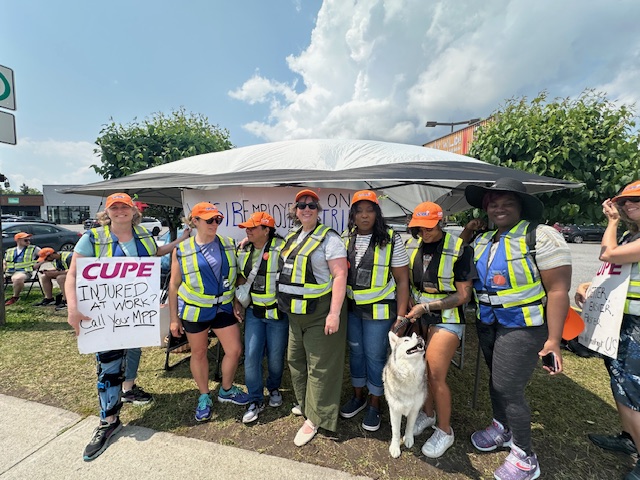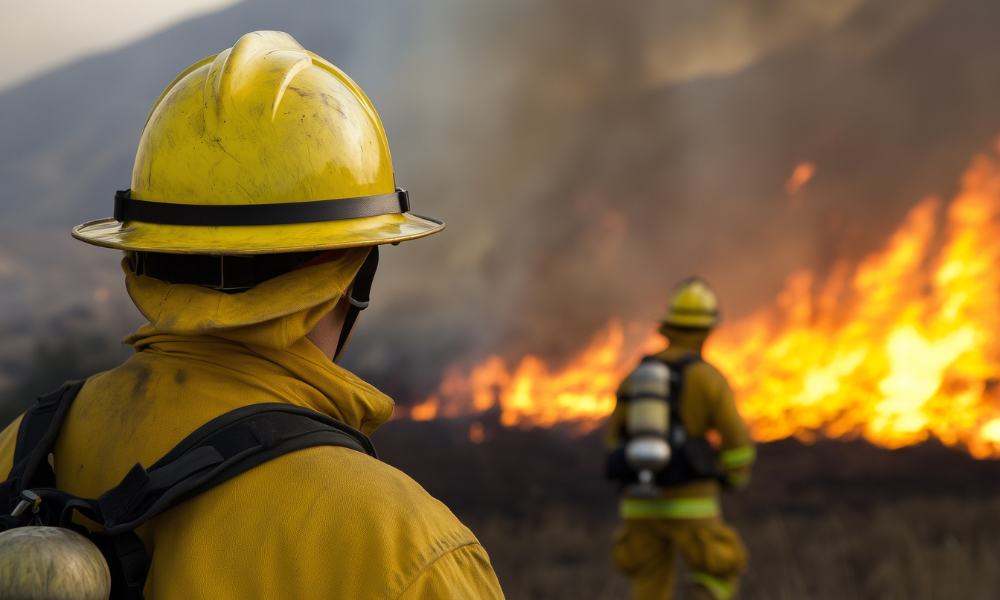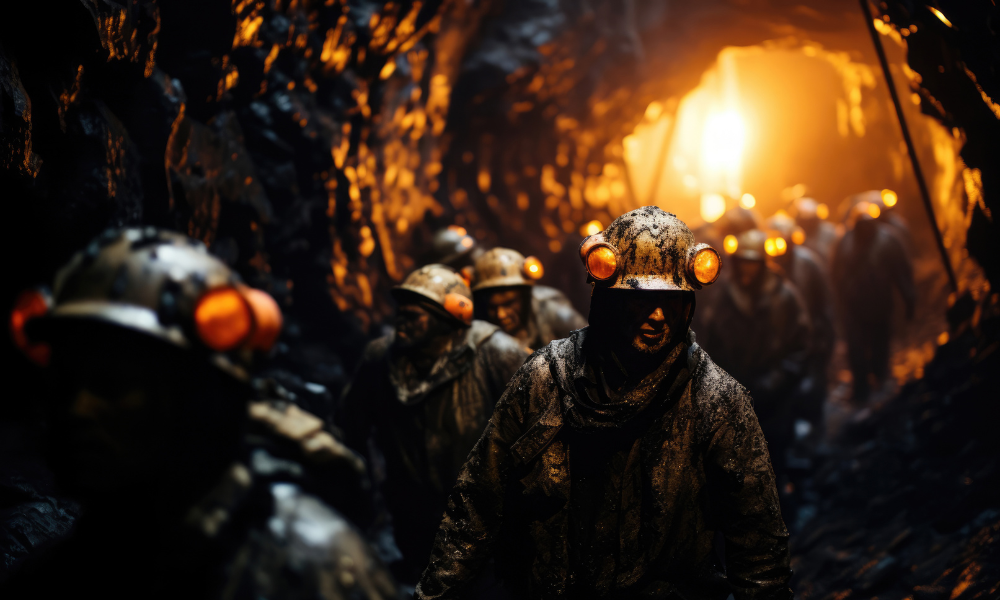ST. JOHN'S, N.L. — A union representing offshore oil workers in Newfoundland and Labrador called Wednesday for a larger fleet of better equipped helicopters.
The Communications, Energy and Paperworkers union represents about 600 workers on the Terra Nova offshore production vessel. Local 2121 president Brian Murphy told a public review into the new Hebron offshore oil project that choppers flying offshore should be able to operate safely for 30 minutes if oil is lost from the main gearbox.
Four Sikorsky S-92 choppers that now fly to offshore sites about 350 kilometres southeast of St. John's, N.L., don't have that so-called "run dry" capability, while newer aircrafts do.
"There is no logical reason why workers in the Newfoundland and Labrador offshore should have less than the best available safety capacity in the helicopters in which they must fly to their work," Murphy told the review commission.
Three weeks of public hearings into the Hebron offshore oilfield development are being held in St. John's to put questions and concerns on record. First oil from the field, estimated to hold up to about 700 million barrels, is not expected for another five years.
Murphy also called for more helicopters to be added to the Cougar fleet. Flights are cancelled in rough weather when waves are higher than six metres, he said in an interview.
The safety measure was recommended by the Transportation Safety Board in its report last February on the crash of Cougar Flight 491 about 55 kilometres east of St. John's. The disaster on March 12, 2009 killed 17 of 18 people flying in the Sikorsky S-92 helicopter. It happened 11 minutes after the two pilots reported a massive loss of oil pressure and ultimately lost steering control. Two of three titanium studs that secure the oil filter assembly to the main gearbox had snapped off in flight, draining oil from the main gearbox.
Titanium studs have since been replaced with steel parts on Sikorsky S-92s. But U.S. regulators with the Federal Aviation Administration have indicated that refitting gearboxes on existing choppers that have safely logged millions of flight hours would be costly.
Murphy called that assertion "offensive" in his written submission, and said bigger helicopter fleets are also needed.
"It has made a difference, there's no doubt about it," he said of flights being cancelled when waves are higher than six metres. Resulting backlogs have to be cleared when the weather allows.
Murphy also called for shorter rotations for workers who are now offshore for three weeks, then home for three weeks. Workers in the British sector of the North Sea work two weeks on with three weeks onshore, while those in Norway work two weeks offshore and then have four weeks onshore, he said.
Safety, recruitment and morale could all be improved with shorter offshore rotations, Murphy said.
The multibillion-dollar Hebron development is being developed by ExxonMobil Canada with partners Chevron Canada, Suncor, Statoil and Nalcor, the provincial Crown energy corporation.
Hebron project manager Geoff Parker, of ExxonMobil, told the review commission that the company will invite proposals for helicopters that meet federal requirements.
Murphy said workers in the rough North Atlantic offshore deserve choppers that are "over and above" minimum Transport Canada standards.
The Communications, Energy and Paperworkers union represents about 600 workers on the Terra Nova offshore production vessel. Local 2121 president Brian Murphy told a public review into the new Hebron offshore oil project that choppers flying offshore should be able to operate safely for 30 minutes if oil is lost from the main gearbox.
Four Sikorsky S-92 choppers that now fly to offshore sites about 350 kilometres southeast of St. John's, N.L., don't have that so-called "run dry" capability, while newer aircrafts do.
"There is no logical reason why workers in the Newfoundland and Labrador offshore should have less than the best available safety capacity in the helicopters in which they must fly to their work," Murphy told the review commission.
Three weeks of public hearings into the Hebron offshore oilfield development are being held in St. John's to put questions and concerns on record. First oil from the field, estimated to hold up to about 700 million barrels, is not expected for another five years.
Murphy also called for more helicopters to be added to the Cougar fleet. Flights are cancelled in rough weather when waves are higher than six metres, he said in an interview.
The safety measure was recommended by the Transportation Safety Board in its report last February on the crash of Cougar Flight 491 about 55 kilometres east of St. John's. The disaster on March 12, 2009 killed 17 of 18 people flying in the Sikorsky S-92 helicopter. It happened 11 minutes after the two pilots reported a massive loss of oil pressure and ultimately lost steering control. Two of three titanium studs that secure the oil filter assembly to the main gearbox had snapped off in flight, draining oil from the main gearbox.
Titanium studs have since been replaced with steel parts on Sikorsky S-92s. But U.S. regulators with the Federal Aviation Administration have indicated that refitting gearboxes on existing choppers that have safely logged millions of flight hours would be costly.
Murphy called that assertion "offensive" in his written submission, and said bigger helicopter fleets are also needed.
"It has made a difference, there's no doubt about it," he said of flights being cancelled when waves are higher than six metres. Resulting backlogs have to be cleared when the weather allows.
Murphy also called for shorter rotations for workers who are now offshore for three weeks, then home for three weeks. Workers in the British sector of the North Sea work two weeks on with three weeks onshore, while those in Norway work two weeks offshore and then have four weeks onshore, he said.
Safety, recruitment and morale could all be improved with shorter offshore rotations, Murphy said.
The multibillion-dollar Hebron development is being developed by ExxonMobil Canada with partners Chevron Canada, Suncor, Statoil and Nalcor, the provincial Crown energy corporation.
Hebron project manager Geoff Parker, of ExxonMobil, told the review commission that the company will invite proposals for helicopters that meet federal requirements.
Murphy said workers in the rough North Atlantic offshore deserve choppers that are "over and above" minimum Transport Canada standards.





